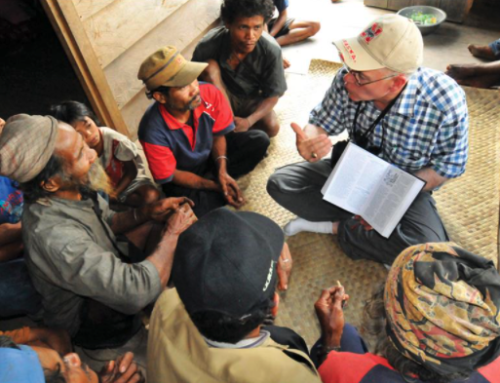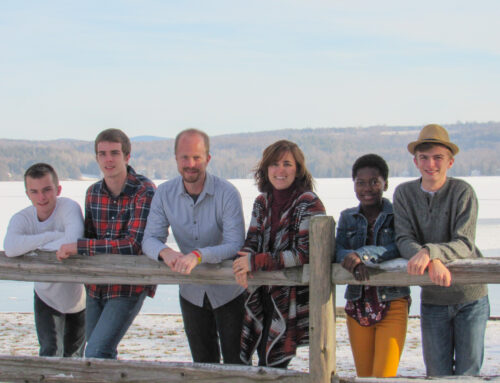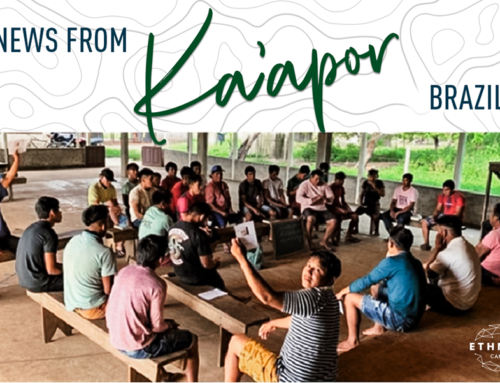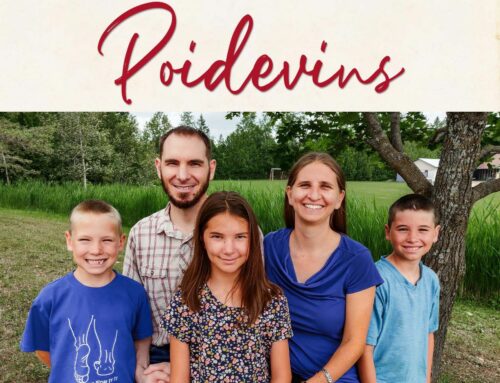Working in the Karen community to physically help people in hopes of opening doors spiritually.
Richard Rees is working a patch of soil near their home. The resulting garden, he hopes, will make a project for his children to work on during summer break.
But the garden space, he writes, is for him, too. “I like to get out and work on digging up the soil as it gives me exercise,” Richard explains.
He’s had trouble finding time to exercise. “I spend most of my time sitting and having conversations with people about language and culture, or sitting in my office reviewing culture and language notes. Not much exercise there,” Richard shares.
Richard has been hard at work studying the culture and language of the Karen people for a while now. “It is easy to point to a stick or a rock and get the word for it. On the other hand, it has been a challenge to get to a deeper level in language. … I believe that to communicate the Gospel effectively, I will need a good understanding of the culture … the people, their difficulties and needs; their fears and hopes.”
As Richard and his wife, Wendy, have built relationships with Karen people, they have prayed for God to open up opportunities to share the Gospel in their community. One opening they have found is through gardening.
“The folks here grow corn year after year and the soil has deteriorated. With lots of fertilizer and herbicides, they just continue to grow corn,” writes Richard.
There is not much concern about corn prices or the quality of the soil. Little thought is given to what effect the fertilizers and sprays are having on the environment. Corn has simply always been the crop of choice.
After some research, Richard and Wendy decided to take some villagers on a field trip to learn about the possibility of growing cashews as an alternative to corn.
“It was a good trip and we learned a lot,” Richard says. “It looks like growing cashews would be a better cash crop than growing corn.”
Just as there are intricacies in language study, so are there intricacies in studying a culture. Sometimes effective ministry involves carefully guiding people in new insights that will benefit their community. This week it was about exploring new crops and new ways of planting. In a few weeks, there will be another trip to learn how to make organic fertilizer.
“Pray that as believers learn about ways to help their community, it can be an opportunity for them to be a light and testimony to their friends and relatives around them,” Richard writes.
When Richard works in his own garden, he often thinks of the parable from Matthew 13 that Jesus told of the sower. “It was the seed that fell on good ground that yielded fruit,” Richard observes. “Language and culture study, building relationships and prayer are all ways of preparing the soil. Pray that the hearts of the Karen people would become good soil. Pray that we will not grow weary working in the fields.”






